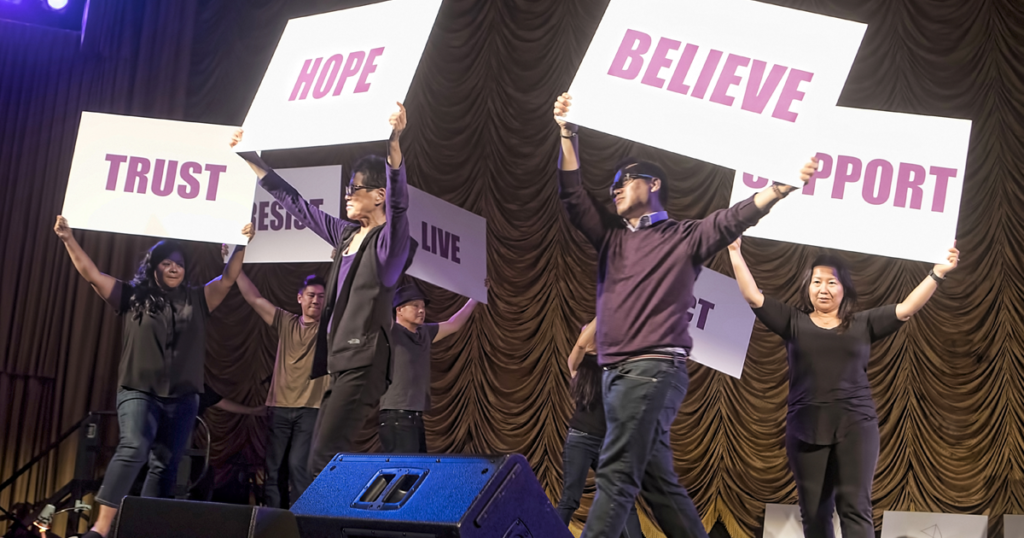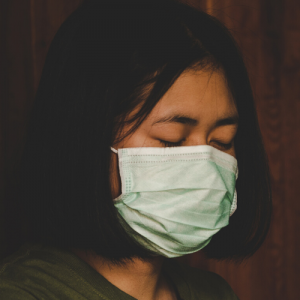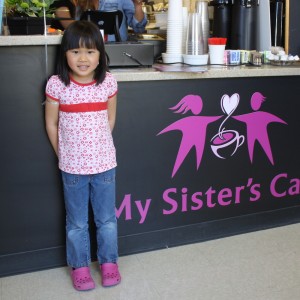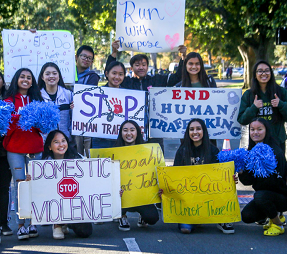
COVID-19 or Not, My Sister’s House Services Are Essential
By AdministratorMy Sister's House was FBB's 1st Quarter Humanist Grant recipient in the category of Human Rights.
It’s kind of ironic: COVID-19 and My Sister’s House's 19th anniversary. The theme of My Sister’s House 19th Anniversary Gala this year was “together”, and together we are all impacted by the coronavirus. My Sister’s House services are needed now more than ever. Why?
My Sister’s House is a culturally responsive domestic violence organization based in Sacramento, CA that seeks to assist Asian/Pacific Islander and other underserved women and children who are victims of domestic violence, sexual assault, or human trafficking. There are two interrelated services that My Sister’s House provides best: 1) culturally responsive services for Asian/Pacific Islander victims (yes, we still serve survivors of all ethnicities), and 2) helping survivors “get back on their feet financially.”
Why My Sister’s House services?
Because safety is a human right and necessity, COVID-19 or not.
This week for example My Sister’s House was asked if we could provide shelter to a Chinese speaking human trafficking client. Unfortunately, our three 6-bed shelters were at full capacity. Why would a client want to be in our shelter? Answer: Trauma-based healing begins with one’s culture. It is telling your story in your primary language. It means not having to explain values, communication styles, or decision making. It means being comfortable in a new environment with people, décor, and food that one relates to and finds comforting. One of the reasons My Sister’s House operates 6-bed shelters is because we believe that it is culturally responsive to help maintain a family-like setting.
 Due to COVID-19, Asians/Pacific Islanders are facing additional economic pressures. Many Asian businesses including nail salons, restaurants, and massage businesses have had to close. During this unprecedented time, racism and xenophobia against Asian and Pacific Islander communities has heightened because of the origins of COVID-19. Asian and Pacific Islander women who are experiencing domestic violence in their homes will be fearing both COVID-19 and their abusive partners.
Due to COVID-19, Asians/Pacific Islanders are facing additional economic pressures. Many Asian businesses including nail salons, restaurants, and massage businesses have had to close. During this unprecedented time, racism and xenophobia against Asian and Pacific Islander communities has heightened because of the origins of COVID-19. Asian and Pacific Islander women who are experiencing domestic violence in their homes will be fearing both COVID-19 and their abusive partners.
As folks in the United States and other parts of the world are staying in their homes for safety, domestic violence victims face increased danger staying home with their abuser. Imagine how horrible the situation is for those who have language barriers. Do they know who to call? Will they be understood by law enforcement, hospital, clergy, or social services agencies? Isolation or quarantine is the exact opposite of medicine for survivors, especially for Asian/Pacific Islander survivors who need to build a new family of supporters.
Before or after COVID-19, domestic violence survivors of all ethnicities need to be able to live financially independent of any abusive partner. Attempting to operate with social distancing practices right now, My Sister’s House is especially proud of its Women to Work program and social enterprise efforts. My Sister’s House Women to Work Program is very unique in that survivors are supported financially in various ways. From resume preparation and interview training to rent and utility assistance to peer counseling, a distinctive part of the program provides survivors with actual employment opportunities at our organization’s first social enterprise, My Sister’s Café. As most survivors at My Sister’s House face cultural barriers in language and accessibility, My Sister’s Café allows survivors an opportunity for job development in a culturally and socially aware work environment.
 With two locations in the heart of downtown Sacramento on Capitol Mall, both of My Sister’s Cafés are additionally used as a space to meet clients and as a public platform to reach more survivors and the community with our programs and services. My Sister’s Café— which features delicious American food with an Asian twist— is the only such social enterprise operated by a domestic violence organization in California, and perhaps the nation.
With two locations in the heart of downtown Sacramento on Capitol Mall, both of My Sister’s Cafés are additionally used as a space to meet clients and as a public platform to reach more survivors and the community with our programs and services. My Sister’s Café— which features delicious American food with an Asian twist— is the only such social enterprise operated by a domestic violence organization in California, and perhaps the nation.
Last year, My Sister's Cafe provided $100,000 in wage support for domestic violence survivors who then used those funds for services and needs locally. Approximately 75% of My Sister's House clients who worked at My Sister’s Café received more than a 30% increase in their income after working at My Sister’s Café. The other 25% of clients continued with school or moved. As our survivors acquire experience and confidence, they will be moving on to higher paying jobs and the positive employment cycle will continue.
What will happen post COVID-19?
My Sister’s House, along with domestic violence advocates everywhere, believe that crisis helpline calls for assistance will skyrocket, both because the “isolation” stress will be lessened and because the economic stress will be continuing for some time. Still, together and with support from many, My Sister’s House will strengthen its services to keep helping survivors of domestic violence be safe, COVID-19 or not.
In the coming years, My Sister’s House hopes to provide a fourth culturally responsive shelter for another 6 survivors. My Sister’s House hopes to replicate My Sister’s Café's success, if not if not improve upon it, with its second social enterprise to be called My Sister’s Treasures. An upscale recycled gift store with an Asian/Pacific Islander theme, My Sister’s Treasures is also part of My Sister’s House's 20th anniversary vision to provide retail training and additional job experience to survivors.
For its 20th anniversary, My Sister’s House is raising $2 million which will provide funds to start another shelter and improve upon existing ones; strengthen its programs, including its Women to Work Program with My Sister’s Treasures; and build an endowment fund to help support the organization in difficult years. Together, this $2 million goal and 20th anniversary vision for My Sister’s House can be achieved. For so many reasons, it’s essential!
The COVID-19 crisis presents a unique set of circumstances and challenges for Humanist Grant beneficiary organizations. Help us continue adapting the Humanist Grants program to the current environment by making a contribution today.

